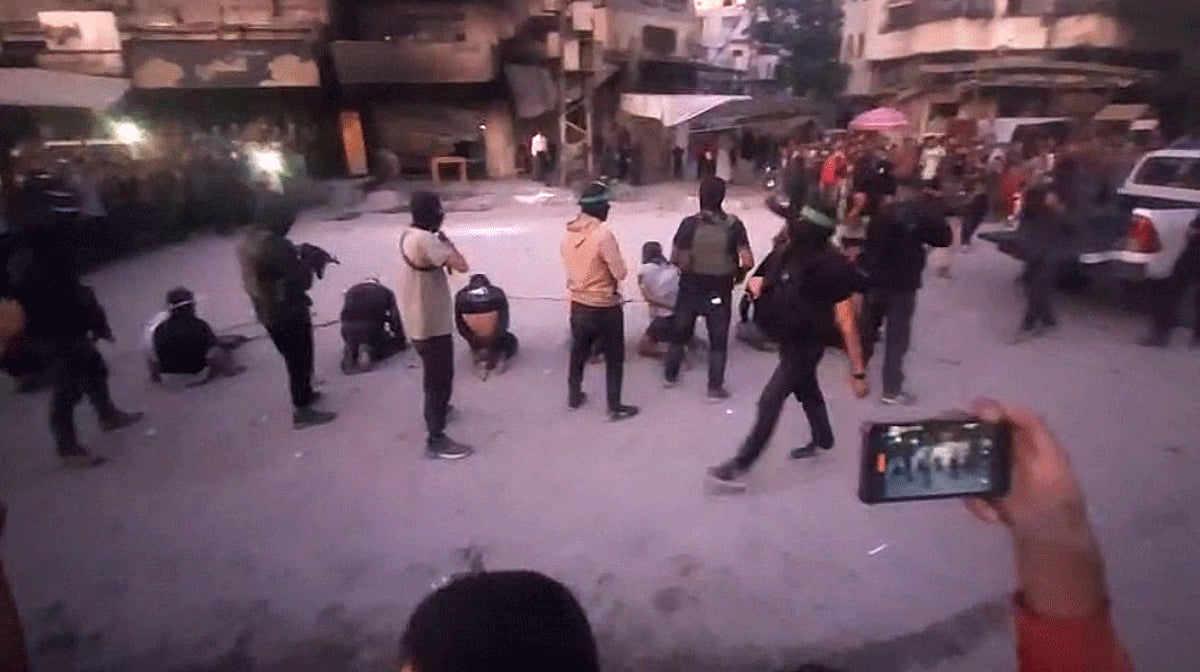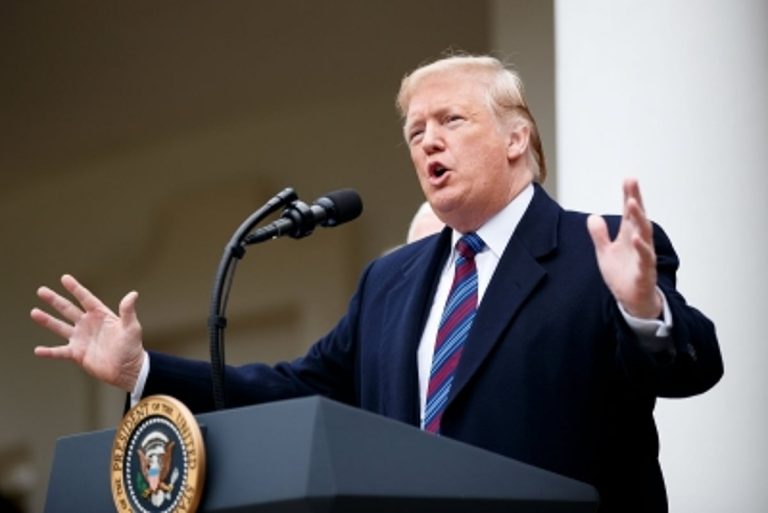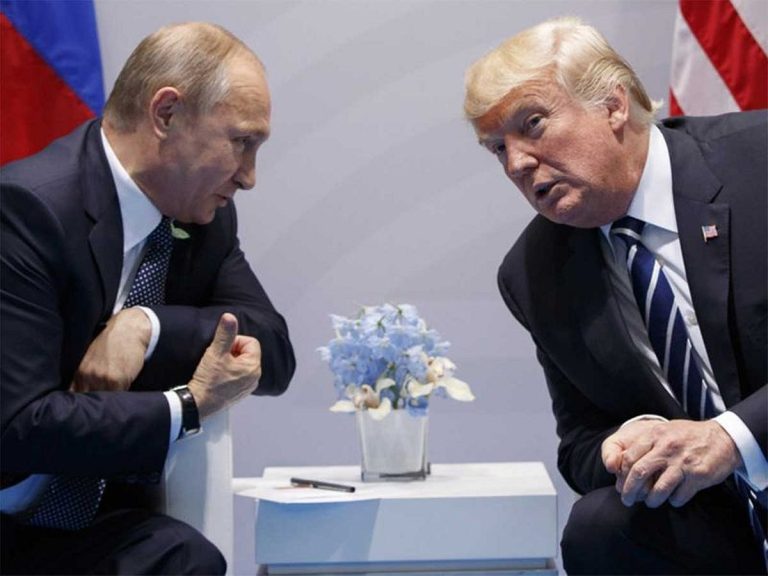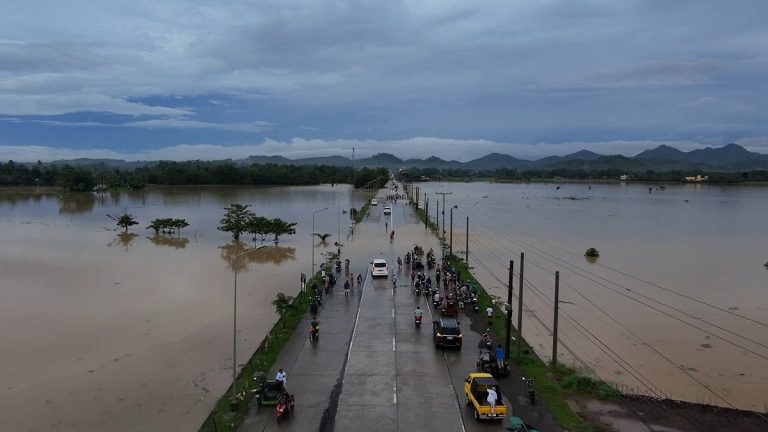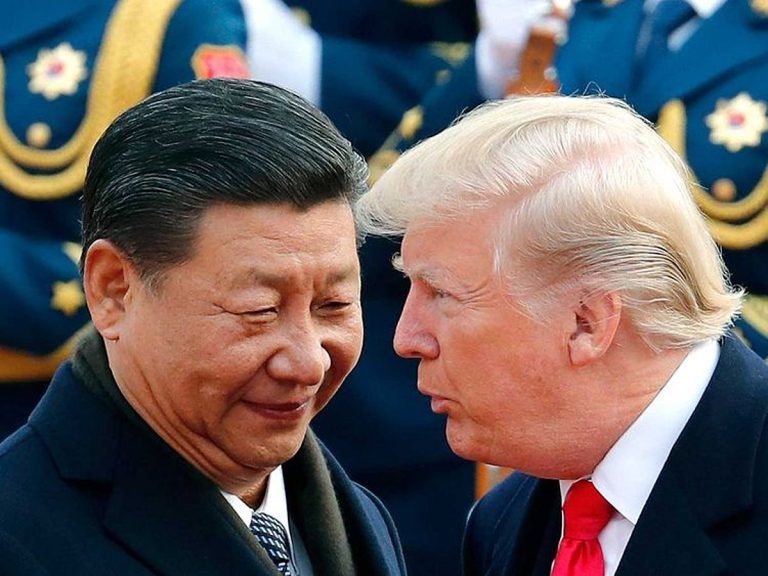Trump Warns Hamas Amid Escalating Gaza Violence
In a recent statement, U.S. President Donald Trump expressed strong disapproval of Hamas’s actions in Gaza, threatening decisive action if the violence continues. His comments come in the wake of a ceasefire agreement with Israel, which has been undermined by reports of Hamas executing Palestinian civilians.
Context of the Threat
Trump’s remarks were made on his Truth Social platform, where he stated, “If Hamas continues to kill people in Gaza, which was not the Deal, we will have no choice but to go in and kill them.” This statement reflects a growing concern over Hamas’s recent activities, including public executions and a crackdown on dissent in the region.
Despite the gravity of his words, Trump did not clarify who he meant by “we,” although he previously indicated that U.S. military involvement might not be necessary. His comments come after a partial withdrawal of Israeli forces from Gaza, which was part of a U.S.-backed ceasefire plan aimed at stabilizing the area.
Recent Developments
The situation in Gaza has escalated since the ceasefire, with Hamas reportedly tightening its control over the territory. The group has been executing alleged collaborators in public, raising alarms among international observers. Admiral Brad Cooper, the top U.S. commander in the Middle East, has urged Hamas to cease these actions and adhere to the terms of the ceasefire.
Interestingly, Trump had previously downplayed the significance of these killings, referring to the victims as members of “very bad gangs.” During a cabinet meeting, he stated, “That didn’t bother me much to be honest with you. That’s OK.” His comments suggest a complex stance on the violence, oscillating between condemnation and a more lenient view of Hamas’s actions.
Diplomatic Efforts
During a recent trip to Israel and Egypt, Trump remarked that Hamas had been “open” about wanting to resolve issues in Gaza. He emphasized that the U.S. had granted them approval for a limited period to stabilize the situation. This diplomatic approach contrasts sharply with his latest threats, highlighting the precarious balance of power and the challenges of maintaining peace in the region.
FAQs
What prompted Trump’s warning to Hamas?
Trump’s warning was prompted by ongoing violence in Gaza, including public executions by Hamas, which he views as a violation of the ceasefire agreement with Israel.
Has the U.S. military been involved in Gaza recently?
Trump indicated that U.S. military involvement may not be necessary, suggesting that other measures could be taken to address the situation.
What is the current situation in Gaza following the ceasefire?
Since the ceasefire, Hamas has increased its control over Gaza, leading to public executions and crackdowns on dissent, raising concerns about human rights violations.
Conclusion
President Trump’s recent statements reflect a significant escalation in rhetoric regarding Hamas’s actions in Gaza. As violence continues to disrupt the fragile peace established by the ceasefire, the international community watches closely to see how the U.S. will respond and what measures will be taken to ensure stability in the region.
The ongoing conflict in Gaza has deep historical roots, with tensions between Israel and Hamas dating back to the early 2000s. Hamas, which governs the Gaza Strip, has been involved in multiple conflicts with Israel, often resulting in significant civilian casualties and humanitarian crises. The international community has frequently called for peace negotiations and a two-state solution, but progress has been hindered by mutual distrust and ongoing violence.
The recent escalation in violence has drawn attention from various global leaders and organizations, who are concerned about the potential for further destabilization in the region. Human rights groups have condemned Hamas’s actions, particularly the public executions, as violations of international law. These developments complicate the already challenging landscape for diplomatic efforts aimed at achieving lasting peace between Israelis and Palestinians.
As the situation evolves, the role of the United States remains critical. The U.S. has historically been a key ally of Israel while also attempting to mediate peace talks with Palestinian factions. The balance of U.S. support and pressure on both sides will be crucial in determining the future trajectory of the conflict and the prospects for a sustainable resolution.
Also Read:
Houthi Leader Killed in Israeli Airstrike, Tensions Rise

